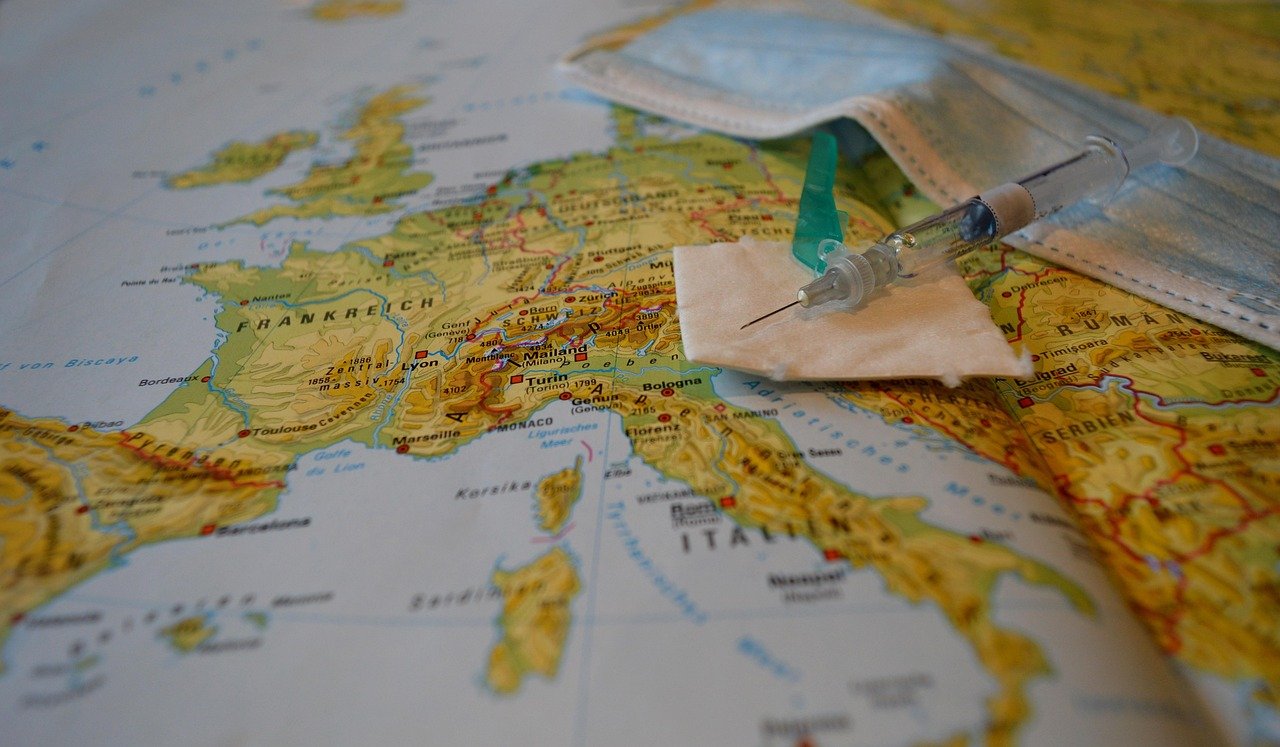Understanding Personal Choices in Vaccination
Vaccinations are a crucial aspect of public health, particularly in the context of international travel. As individuals prepare for journeys abroad, they face a range of choices regarding the vaccinations they receive. While some view vaccinations as a mandatory step to ensure their safety and that of others, others hold personal beliefs that guide their decision-making processes. This divergence in attitudes toward vaccinations reflects broader societal discussions about health, safety, and personal autonomy.

When traveling with family, the responsibility for making informed decisions about vaccinations becomes even more significant. Families must weigh the recommended vaccinations against their personal beliefs and circumstances. For instance, certain individuals may have health conditions that contraindicate specific vaccines, while others may have philosophical or religious beliefs that inform their choices. Understanding these perspectives helps families navigate the complex landscape of vaccination requirements while also considering the potential health risks associated with not receiving vaccines.
It is essential to recognize that opting out of vaccinations can have consequences, particularly during international travel. Countries may impose strict entry requirements, requiring proof of vaccination for specific diseases like yellow fever or measles. Visitors without the necessary documentation may face quarantines, denied entry, or even legal issues. Each family must evaluate these risks, balancing personal beliefs against the practicalities of travel. Consulting with healthcare professionals or resources from agencies like Bonne Vacances Travel Agency can aid travelers in making informed choices about their family vaccinations, ultimately fostering safer travel experiences.
By understanding the various perspectives on vaccination, individuals can approach their travel plans with a balanced view that respects personal choices while also considering public health recommendations. The decision to vaccinate for international travel is not merely a personal one; it can have wider implications for both the traveler and the communities they visit.

Vaccination Requirements for Domestic Travel in the U.S.
When planning domestic travel within the United States, understanding vaccination requirements is crucial for safeguarding health and ensuring compliance with local regulations. The Centers for Disease Control and Prevention (CDC) provides essential guidelines that travelers should review before embarking on their journeys. While there are no federal mandates for vaccinations for domestic travel, the CDC recommends that individuals be up to date on routine vaccinations, including but not limited to measles, mumps, rubella (MMR), and the influenza vaccine. Staying current with these vaccinations is particularly important in light of localized outbreaks which can occur without warning.
Specific states or regions may also have unique vaccination requirements or recommendations based on current public health assessments. For instance, certain areas that have experienced recent outbreaks of diseases like flu or whooping cough may advise travelers to receive additional vaccinations or booster shots. Furthermore, travelers are advised to check any guidelines set forth by state health departments or regions they plan to visit, as localized requirements may differ significantly from national recommendations.

In addition to the guidelines from the CDC, it is prudent for families traveling together to assess whether their children are up to date with all necessary family vaccinations. Ensuring that children are properly vaccinated can substantially decrease the risks associated with exposure to communicable diseases during travel. Bonne Vacances Travel Agency encourages all travelers to prioritize their health and that of their travel companions by taking necessary vaccinations before embarking on their adventure. Being proactive about vaccinations not only protects individuals but also contributes to the broader public health effort to limit the spread of infectious diseases.
International Travel Vaccination Requirements and Exceptions
When embarking on international travel, understanding vaccination requirements is crucial for ensuring both safety and compliance with the destination country’s regulations. Many countries mandate specific vaccinations for entry, aimed at preventing the spread of infectious diseases. The World Health Organization (WHO) and the Centers for Disease Control and Prevention (CDC) frequently update travel advisories, making it essential for travelers to stay informed about the latest requirements.
Countries such as Australia and certain nations in Africa often necessitate travelers to have vaccinations against diseases like yellow fever, hepatitis A, and typhoid, particularly for visitors coming from regions where these diseases are endemic. Additionally, some countries might require proof of vaccination against COVID-19 or other emerging diseases as a prerequisite for entry. This documentation typically needs to be presented upon arrival and may vary depending on the traveler’s nationality and health status.
Exceptions to vaccination requirements do exist. For instance, several countries allow unvaccinated travelers to enter under specific conditions, such as presenting a negative COVID-19 test or undergoing quarantine upon arrival. However, these exceptions vary widely and can change frequently, emphasizing the importance of checking with reputable sources like Bonne Vacances Travel Agency or governmental agencies before traveling.
Travelers are encouraged to keep a detailed health record and carry their vaccination documentation to avoid complications upon entry. Furthermore, consultation with healthcare professionals regarding family vaccinations before international journeys can aid in making well-informed decisions about necessary immunizations. In light of ongoing health developments, adhering to safety regulations and seeking guidance from health organizations will contribute to safer travel experiences.

Finding Updated Vaccination Recommendations and Prioritizing Health
When planning international travel, staying informed about the latest vaccination requirements is essential for ensuring a safe journey. Various credible organizations provide up-to-date information on vaccinations necessary for different destinations. The Centers for Disease Control and Prevention (CDC) is a leading source for travel health guidelines, including specifics on which vaccinations are recommended or required based on travel locations. Their website offers extensive resources on vaccines that are crucial for travelers, allowing individuals to make informed decisions regarding their health.
The World Health Organization (WHO) is another key resource for travelers, providing global health advisories and updates on vaccine-preventable diseases. Regularly checking these organizations’ websites is crucial for obtaining the most current information about potential health risks and recommended vaccinations for your specific travel itinerary. In addition, local travel clinics can offer personalized health consultations to assess your medical history and advise on necessary vaccinations before you embark on your journey.
Contacting Bonne Vacances can further enhance your travel planning. They often have access to specialized knowledge and can assist with understanding the vaccination landscape for your intended destination. Additionally, engaging with professionals can ensure a seamless incorporation of necessary health precautions into your travel itinerary, which is particularly vital for family vacations where the health of all members must be addressed comprehensively.
Ultimately, prioritizing health and taking the necessary vaccinations is integral to enhancing your travel experience. Ensuring that you are fully prepared with appropriate vaccinations not only safeguards your health but also supports the health and well-being of those around you during international travel. It is advisable to prepare early, as some vaccinations may require multiple doses or take time to take effect, so factor that into your travel plans when consulting with health professionals.




